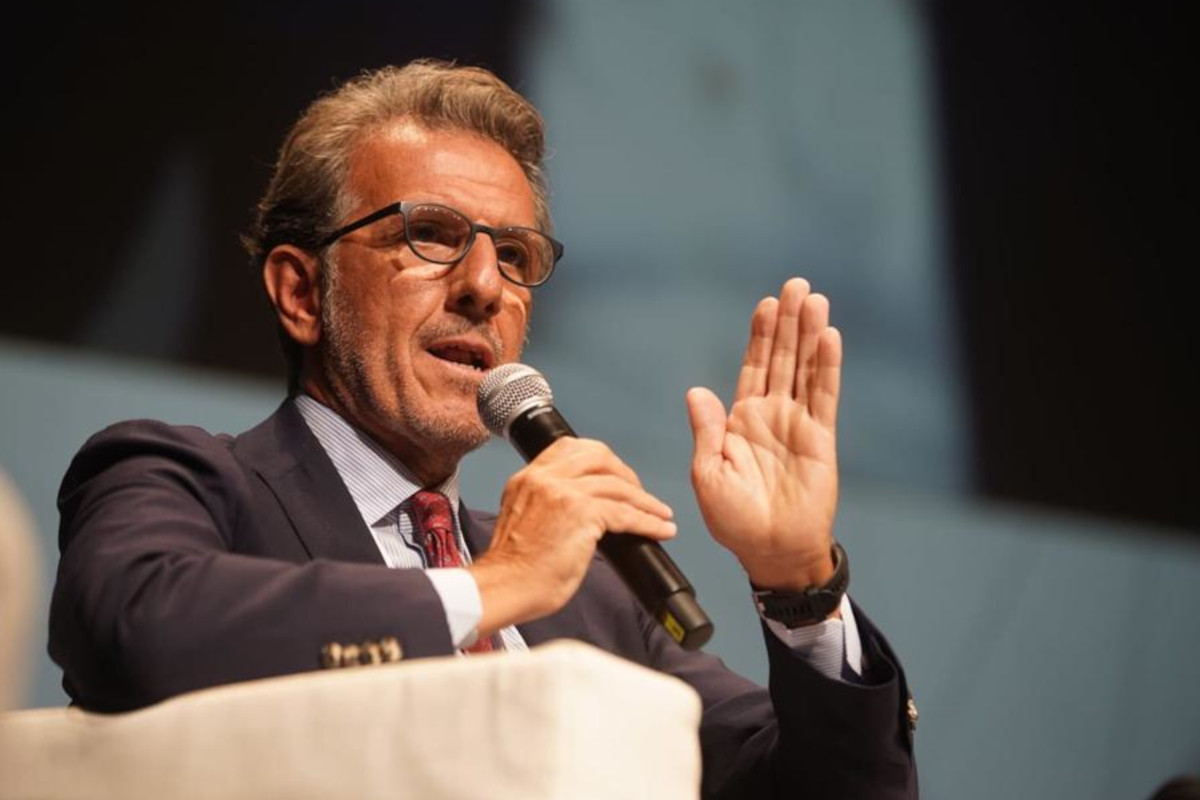
A list of concrete and operational proposals to outline the evolution and development of the Italian olive oil sector, a treasure of Made in Italy food and a strategic link for a sustainable transition in the European agri-food sector. This is the legacy of “The future of Italian olive oil: modern and sustainable”, the first full report on Italian extra-virgin olive oil – produced by the international think tank ‘The European House – Ambrosetti’ in partnership with Italian company Monini (in the picture above the company’s president and CEO, Zefferino Monini).
The report, enriched by a foreword by MEP Paolo De Castro, was presented at Cibus Forum 2020 during the round table “How to modify supply chain relations: strategic value and future prospects for the agri-food industry”, attended by some of the main representatives of the agro-industrial world, including the president of Monini, Zefferino Monini.
Click here to discover the authentic Italian extra virgin olive oil on Italianfood.net platform
ITALIAN OLIVE OIL BY THE NUMBERS
Italy is 2nd in the world for olive oil production and exports (behind Spain) and 1st for per capita consumption. The economic results of the supply chain depend especially on the performance of the industrial segment, which accounts for 70% of total turnover.
- The Italian olive oil sector is a leading player in the global competitive scenario, both in terms of production and export (1.5 billion per year, growing steadily since 2012);
- The olive oil segment in Italy employs 160 thousand people for over 830 thousand companies. It is the most important in terms of employment and number of active companies, despite generating only 30% of total turnover equal to 4.5 billion euros;
- Today in Italy 80% of the olive-growing area is concentrated in southern Italy. Puglia, Calabria and Sicily drive production;
- The transformation phase has about 4,000 active mills, almost three times more than in Spain. Most of them are located in the southern regions that produce the most olive oils: 902 in Puglia, 692 in Calabria, and 569 in Sicily;
- In the Mediterranean basin, where more than 75% of world olive production is concentrated, Italy plays a key role together with Spain, Tunisia and Greece. It produces 15% of olive oil globally;
- Since 2012 Italy’s olive oil exports have increased by +50% from 1 to 1.5 billion euros in just 8 years;
- About 40% of olive oils with a European quality certifications are produced in Italy (43 PDO and 3 PGI). Every year Italy exports over 50% of its certified bottles.
A COMPLETE STUDY ON THE WORLD OF ITALY’S OLIVE OIL
The report is intended to serve as a basis for discussion, at the disposal of stakeholders in the sector and institutions, for the sustainable development of the supply chain. In the year of its centenary, Monini wants to inaugurate a new shared approach based on dialogue and harmonious growth of the agri-food chain, of which olive oil is one of the first ambassadors in the world. Monini itself has set an example with its Sustainability Plan for 2030 launched in March.
Italian extra virgin olive oil, as the report clearly shows, has all the potential – the highest rate of olive biodiversity in the world (583 cultivars, twice as much as Spain), the great variety of natural ecosystems, the technological heritage of the processing industry – to excel internationally in terms of quality, taste and nutraceutical properties.
This in-depth analysis is the starting point for the following six proposals for an effective relaunch of the supply chain, in a modern and sustainable way:
- Promoting an agricultural system with more than one olive grove, enhancing the specificities of the different types of planting by rebalancing distribution throughout the territory;
- Encouraging synergies between universities, producers’ organisations and companies in the chain to stimulate entrepreneurship;
- Paying the right price to all actors in the supply chain to increase the profitability of companies and encourage investments;
- Reducing the environmental impact of production activities through the adoption of sustainable practices by all actors in the supply chain;
- Providing education on the nutritional value of olive oil, in order to consolidate the perception of extra virgin olive oil as a healthy and nutraceutical product;
- Promoting the certification of a premium extra virgin olive oil that ensures a high quality product.
NUTRITIONAL VALUES
The highest rate of olive biodiversity in the world, combined with the variety of natural ecosystems and the technological heritage of the processing industry, make Italian extra virgin olive oil potentially first in the world for quality, taste and nutraceutical properties.
The product is not only the basis of the Mediterranean diet – among the healthiest in the world – but it is also rich in elements such as polyphenols, oleic acid and vitamin E which, in addition to defining the organoleptic profile, help to prevent cancer, diabetes, cardiovascular diseases and cognitive deficits.
